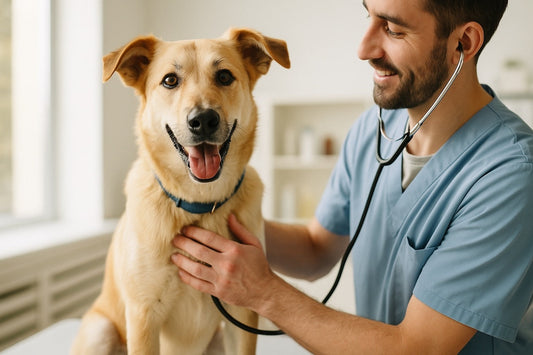The French Bulldog is a popular breed that is loved around the world for its affectionate, playful, and intelligent personality. As with any pet, it is essential to monitor your French Bulldog's health, and one of the key factors to consider is its weight. In this article, we will discuss the ideal weight for a French Bulldog and how you can help your pet maintain optimal physical condition.
French Bulldog Average Weight Chart by Trimester
There are individual variations in French Bulldog weight depending on their age, gender, and size. However, there are a number of general guidelines you can follow to ensure your Bulldog is in the right weight range. An example of an average weight chart might look like this:
- First trimester (0 to 3 months) - 2 to 6 kg
- Second trimester (3 to 6 months) - 6 to 10 kg
- Third trimester (6 to 9 months) - 10 to 14 kg
- Fourth trimester (9 to 12 months) - 14 to 18 kg
Note that a healthy adult bulldog should generally weigh between 16 and 18 kg for a male, and around 11 to 13 kg for a female ;
Factors that affect French Bulldog weight
Some bulldogs may fall outside of these standard weight ranges. There are several reasons why this may occur:
- Genetics : Just like humans, some dogs are naturally smaller or larger than others, which affects their weight.
- Activity Level : French Bulldogs that are very active will tend to be more muscular and therefore possibly heavier than their less active counterparts.
- Diet : Improper diet that does not meet the dog's specific nutritional needs can result in incorrect weight.
How to Determine if Your French Bulldog is Underweight, Healthy, or Overweight?
To determine if your French Bulldog is within the ideal weight range, there are several simple checks you can do:
- Visual Examination : Look at his general appearance – does he have a slender appearance with a visible waistline, or is he stocky with little visible definition?
- Palpating the ribs : By placing your hands on either side of his rib cage, you should be able to feel his ribs without too much pressure. If they are difficult to detect or visible to the naked eye, this may indicate a weight problem.
- Veterinary consultation : If you have any doubts about your French Bulldog's weight, seek the advice of a qualified professional to obtain an accurate assessment and personalized recommendations.
Tips to correct your French bulldog's weight if necessary
If you notice that your bulldog is overweight or underweight, there are several steps you can take to improve his physical condition:
- Changing your diet : If your bulldog's current food is not meeting his nutritional needs, consider switching to a more suitable option with the help of a veterinarian to determine appropriate amounts.
- Incorporate more exercise : French Bulldogs typically require 20 to 40 minutes of daily exercise – make sure your pet has plenty of opportunities to move and play regularly to promote good physical condition.
- Cut down on treats : Limiting snacks between meals will help prevent significant weight gain, while maintaining interest in main meals.
Risks Associated with Inappropriate Weight in French Bulldogs
Maintaining optimal physical condition for your French Bulldog is essential to preventing many potential health problems, including:
- Joint Problems : Being overweight can put extra strain on your dog's joints and cartilage, increasing the risk of developing problems such as arthritis.
- Difficulty Breathing : French Bulldogs are prone to breathing problems due to their short noses - excess weight can make these difficulties worse, making breathing even more labored.
- Diabetes : Like humans, dogs can also suffer from diabetes. An overweight dog is at a higher risk of developing this disease.
- Heart Disease : Carrying too much weight can cause various heart problems, due to the extra stress it places on the heart.
Ensuring that your French Bulldog is within an appropriate weight range will go a long way toward ensuring his good health and quality of life. Don't hesitate to consult a professional with any questions or concerns you may have about your companion's weight to ensure you are making the best decisions possible for his well-being.







